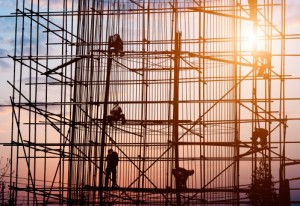 On one side of the debate over the New York Scaffold Law are thousands of construction workers and organizations that represent their interests. On the other side are big businesses, property owners and organizations that seem little concerned about the human toll of construction accidents.
On one side of the debate over the New York Scaffold Law are thousands of construction workers and organizations that represent their interests. On the other side are big businesses, property owners and organizations that seem little concerned about the human toll of construction accidents.
At issue is a law that puts absolute liability on contractors and property owners for construction accidents involving scaffolds and ladders. This means those in charge of job sites are held responsible for injuries involving scaffolds and ladders – and rightfully so.
Opponents of the law say it leads to too many lawsuits. In other words, they incur expenses when their job sites are unsafe.
A recent report from SUNY’s Nelson A. Rockefeller Institute of Government claims that nonfatal construction injuries dropped in Illinois when the state repealed its version of the Scaffold Law in 1995. Unsurprisingly, opponents of the New York Scaffold Law embrace this analysis and are holding it up as evidence the law here needs to go.
But supporters of the law say, in effect, “Not so fast.”
Report Challenged
According to the Albany Times Union, labor advocates say the analysis was bought and paid for by people who want to change the Scaffold Law – hardly a recipe for a fair and honest report.
The Civil Justice Institute, a research arm of the Lawsuit Reform Alliance of New York, which wants to see the Scaffold Law changed, paid $82,800 for the report.
Thomas Gais, director of the Rockefeller Institute, has identified flaws in the analysis and said it was released before a “final round of vetting”.
Displeased with Gais’s critique, the Lawsuit Reform Alliance has filed a request through the Freedom of Information Act demanding all communications from the SUNY Research Foundation involving Gais, researcher Michael Hattery and the institute’s Board of Overseers.
They allege the chairman of the board, Carl Hayden, has a close relationship with Democratic Assembly Speaker Sheldon Silver, known for blocking measures that would restrict lawsuits related to scaffold accidents.
In response, the Center for Popular Democracy, a group known for supporting the rights of construction workers and the Scaffold Law, filed its own Freedom of Information request. It seeks all information related to the initial “Requests for Proposals” for the analysis and other communications between opponents of the Scaffold Law and the Institute.
The main issue is “bogus work,” says Connie Razza of the Center for Popular Democracy. The industry that wants to dismantle the Scaffold Law should not be allowed to “buy credibility” through misleading reports.
Workers Matter
For the workers who risk their lives every day to put up new buildings and repair existing structures, the law is a guarantee that their lives matter and that they’ll have recourse to justice should an accident occur
As advocates of the law told the New York Daily News, the law protects workers like a man who suffered a broken spine, foot and knee when he fell from a ladder at a Bronx warehouse. The worker said he had informed his boss months before the accident that the ladder was unsafe. He hasn’t been able to work since the accident.
Cases like this play out across the state. Without the Scaffold Law, workers could be left without support, broken and broke.
